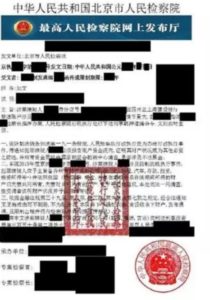Back to Office of International Students and Scholars
Common Scams in the United States
Unfortunately, scams are common in the United States, just as they are in many countries. Additionally, many scams in the U.S. target international students in particular.
Common Scam Tactics (Jump to list of common scams)
- Asking you to ensure you are alone before speaking with you or requiring that you do not inform anyone about your correspondence.
- Scammers will often use spoofing technology to mask their real phone number for a fake phone number. The fake phone number they choose will show up as the government agency from which they claim to be calling. Scammers will often suggest you Google the phone number as “proof” that they are calling from that agency. Someone actually from a government agency would not make such a suggestion. Telling you to enter a phone number into an Internet search engine is a clear sign of a scam.
- Requiring immediate payment in the form of Apple gift cards, Visa cash cards, or direct wire transfer. The payment will often purportedly be necessary to resolve some kind of problem.
- Not immediately turning to the topic of payment. Hoping to gain your trust and make their case more believable, a scammer might provide false evidence and correspond with you for multiple days before bringing up the topic of payment. The person might also be trying to solicit other information that they might use to compromise your identity, such as your social security number or passport number.
- Asking you how much money is currently available in your checking account. No legitimate government agency would ask a question like this.
- Asking you to download an encrypted messaging app for to communication, or after speaking with you on the phone to require that further communication be entirely through Apple iMessage.
- Using hacked information to increase credibility. Some scammers might use hacked information or public record information about you to make them seem more believable. Examples of such information that scammers have used on our students in the past include providing their Chinese identity number (身份证), and an address where the student’s family once lived but from which they had since moved. In this case, access to the identity number was enough for the scammer to discover the old residential address—that is to say, these two pieces of information were actually from the same source. Do not worry if scammers have access to some of your personal information. In most cases, they will be unable to use your information for their own gain, but if you are concerned you might consider contacting your bank.
Common Scams
- The most common scam we receive pretends to be from the Chinese Consulate. In Mandarin Chinese, the scammer—usually a recorded woman’s voice—says, “您好,这里是中国驻美总领事馆。您有一封重要通知书尚未领取.将在今天限制出入境.如需咨询请按 1,校验通知书请按 2.” If you press either number, you will speak to a real person who might pretend to hold one of several different roles. He might pretend to be a Beijing police officer, and inform you that someone has used your credit card to commit fraud. He might pretend to be an “Interpol” international police officer who you must obey or risk deportation. Click here to read a detailed description of this scam on a Chinese-language forum.

A fake “Interpol” ID the scammer might provide. 
A fake “Chinese Police” ID the scammer might provide. 
A fake case report that the scammer might send you. The source for this image is a news story that describes in detail one of the forms this scam might take. Please note that even if the “evidence” provided to you does not exactly match these images, that does not mean it is not a scam! Scammers are professional thieves who regularly update their tactics to evade detection.
- Social Security Administration Scam
You will receive a message stating that your social security number is connected to illegal activity or fraud. Hear what that sounds like. More recently, scammers will tell people that they are going to terminate or revoke their Social Security Number and might mention overdue taxes as the reason. - IRS (Tax Bureau) Scam
Scams involving taxes are unfortunately quite common. Scammers know that most people—especially international students—might not have a deep understanding of the United States tax system. The scammer might pretend to be a part of the Taxpayer Advocate Service (TAS). Deploying a common scam tactic, they might initially pretend to be acting on your behalf. Their demeanor might make you more inclined to believe what they say. But you might notice that they turn more aggressive when they start demanding immediate payment. The IRS will never demand immediate payment over the phone, and will never require payment in the form of a pre-paid Visa card, Apple or Amazon gift card, or wire transfer. - Bank Text Scam
You might receive a text claiming to be from your bank, which asks you to input your bank account number to resolve a problem with your account. Your bank will never require you to provide your full bank account number. They will verify your identity through other means, and will already have access to your account information in their system.
